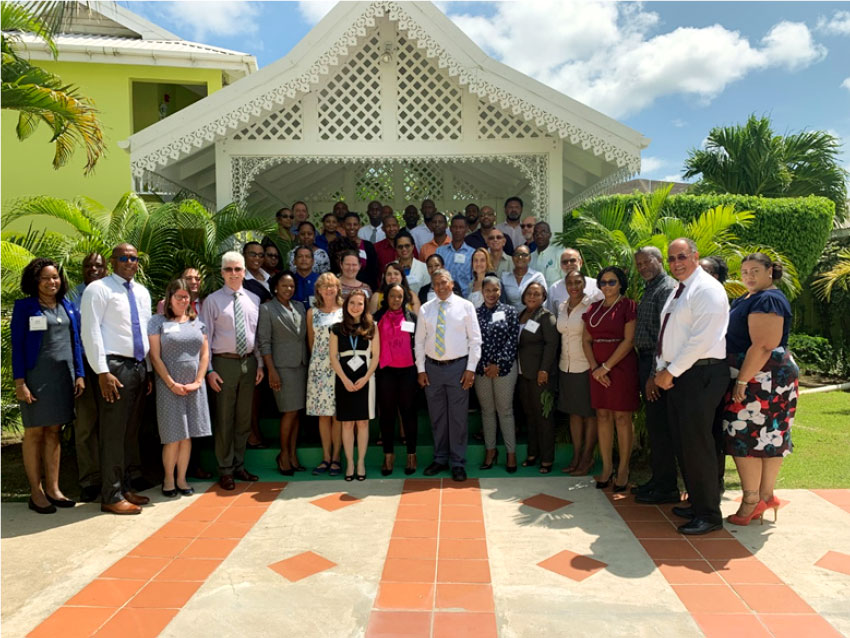THE Department of Economic Development, Transport and Civil Aviation and the World Meteorological Organization (WMO) hosted the Enhancing the Climate Science Basis of GCF Funded Activities Workshop in Saint Lucia on Monday 30th September, 2019. The workshop, the first of its kind globally, was held at the Bay Gardens Hotel and saw a cadre of regional and international experts in water resource management, coastal management, fisheries, agriculture and food security, and forestry.
The aim of the event was to build the capacity of local officials across line ministries to integrate available climate science data and modelling tools in the development of project concepts for consideration by the Green Climate Fund.

Guy Joseph, Minister for Economic Development, Housing, Urban Renewal, Transport and Civil Aviation, made an impassioned plea to balance the need to integrate scientific data into the formulation of projects and the urgency to implement such projects that are essential to impacting the livelihoods of Saint Lucians.
Dr Maxx Dilley, Director of Climate Prediction and Adaptation at the World Meteorological Organization (WMO), explained that his organization, which is the United Nations system’s authoritative voice on weather, water and climate, is working across its 193 member countries to empower them to use the best available science as a basis for climate action. In 2018, WMO signed an agreement with the Green Climate Fund to ensure that proposals submitted to the GCF have a sound climate science foundation. Under the agreement, WMO experts have compiled a comprehensive methodology that provides techniques and tools for assessing the past, present, and potential future climate conditions. Experts used these resources during the workshop to identify and address the climatic factors important for Saint Lucia.
Permanent Secretary in the Department of Economic Development, Transport and Civil Aviation, Claudius Emmanuel, said that though 1.5 degrees is the threshold the international community agreed that beyond which irreversible damage would be inflicted on the planet’s ecosystem, for the Caribbean region the tipping point is way below this threshold. Emmanuel, who is also the National Designated Authority for the Green Climate Fund, said this is evident by the increased frequency and intensity of hurricanes across the region, inflicting significant damage on the economies and society of the Caribbean.
The Department of Economic Development, Transport and Civil Aviation will be finalizing the Saint Lucia Green Climate Fund Country Programme later in the year. This programme will guide how Saint Lucia engages with the Green Climate Fund and will manage the process by which projects across sectors are selected and submitted to the Green Climate Fund for funding consideration.










![.[L-R] Parliamentary Representative for Castries Southeast, Lisa Jawahir & Talk show host, Timothy Poleon](https://thevoiceslu.com/wp-content/uploads/2026/02/Lisa-Jawahir-Timothy-Poleon-380x250.jpg)
![Public Service and Utilities Minister Stephenson King delivered remarks [Photo credit: VP]](https://thevoiceslu.com/wp-content/uploads/2026/02/Stephenson-King-380x250.jpg)

